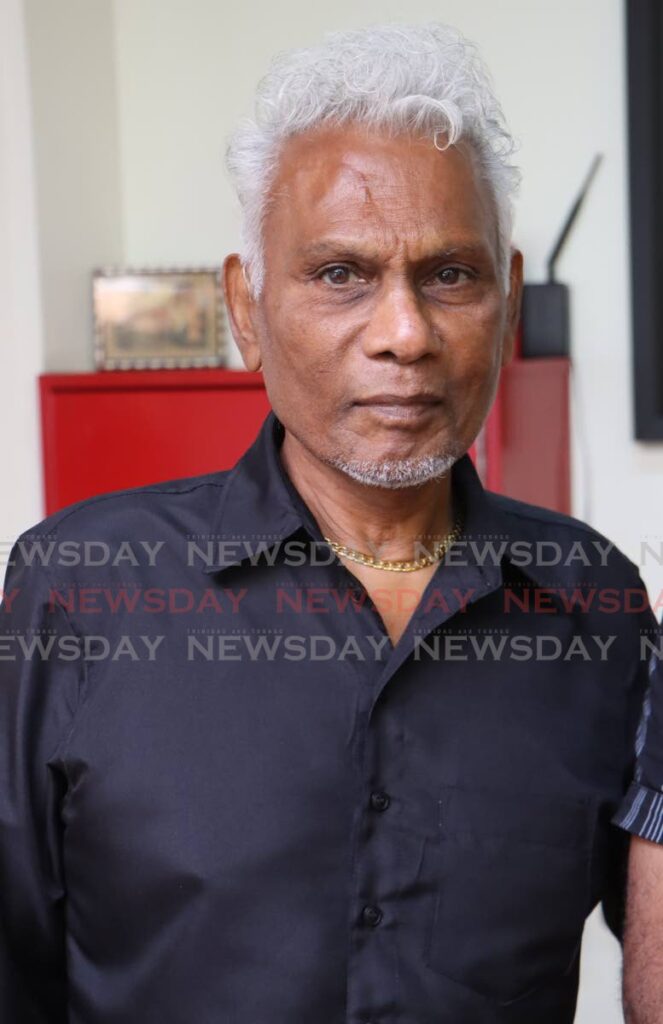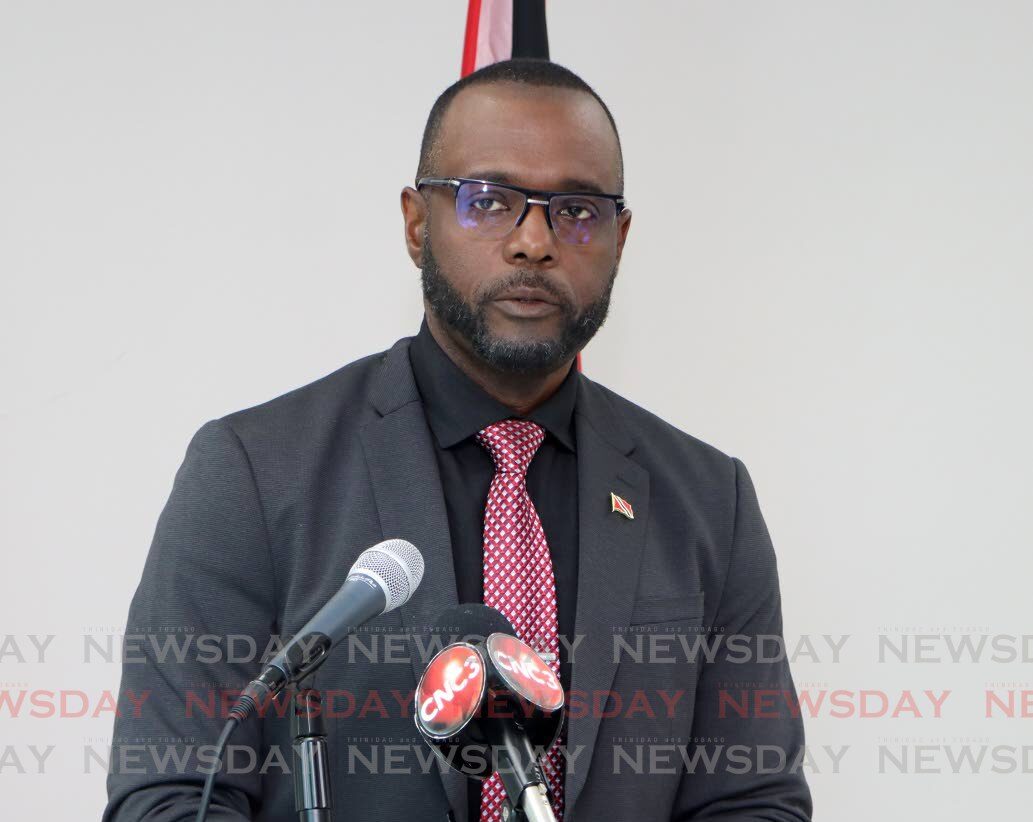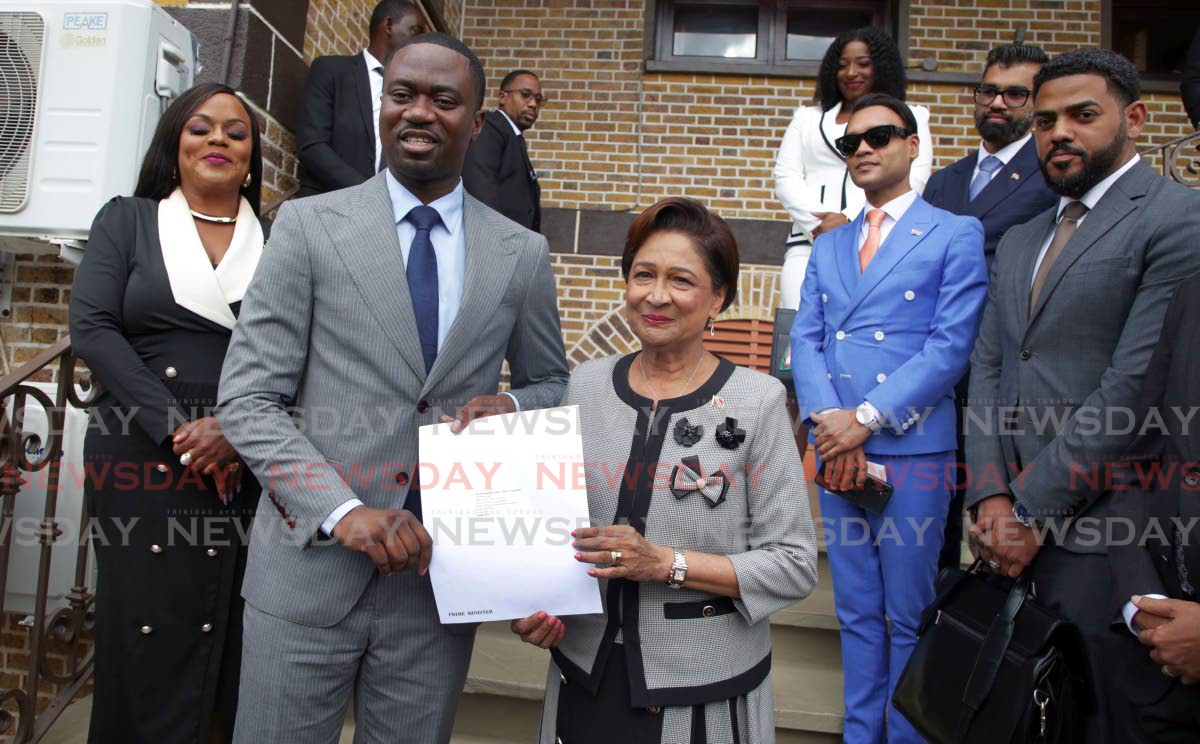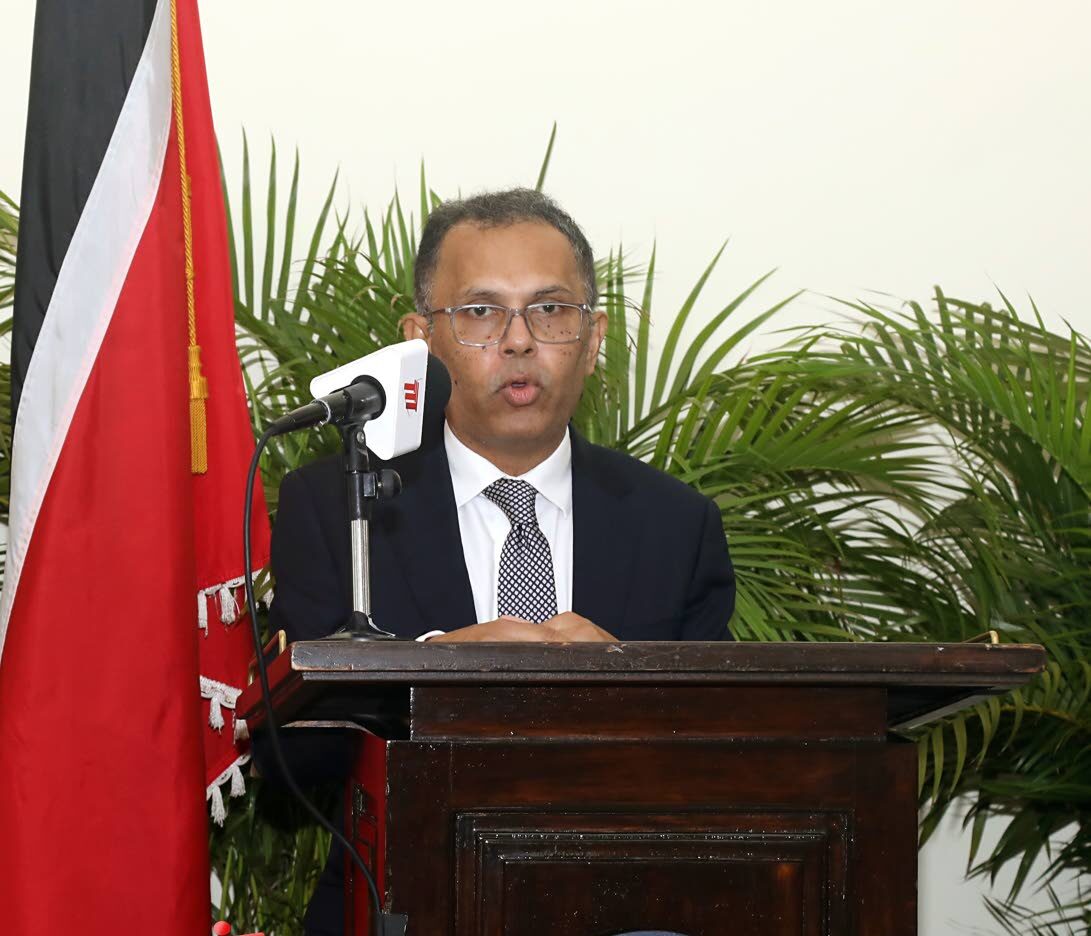The Ministry of People and Social Development in Trinidad and Tobago has clarified that it currently has no active financial relationship with the Trinidad and Tobago Red Cross Society (TTRCS). This decision stems from the TTRCS’s failure to meet compliance requirements, particularly the timely submission of audited financial statements. In a media release dated November 4, the ministry acknowledged that the TTRCS is in the process of updating its records and has recently submitted audited statements for the years 2019 to 2022. The ministry’s statement was issued in response to recent media reports concerning the TTRCS’s financial challenges. The ministry emphasized that once full compliance is achieved, it will assess the organization using established monitoring and evaluation procedures to determine future funding considerations. Both entities remain committed to their shared mission of supporting the most vulnerable members of society, a commitment reaffirmed during meetings earlier this year. On November 1, newly elected TTRCS vice president Edward Moodie revealed that the organization currently has no funds during the reopening of the Red Cross South Branch on Ruth Avenue, San Fernando. Moodie stated that the TTRCS is owed over a million dollars and may need to explore legal options to recover these funds. He also highlighted operational issues, including a breakdown in ambulance services and the need to renegotiate several contracts, particularly the Tobago contract, which he deemed financially unsustainable. The ministry’s stance echoes a June 4 media release, which addressed governance and management issues within the TTRCS. At that time, the ministry described the TTRCS as a key civil society actor but noted the absence of a financial relationship due to compliance issues. Both agencies remain committed to serving the most vulnerable in society, and the ministry anticipates that the TTRCS will continue to uphold principles of good governance, accountability, fairness, equity, and equality.
标签: Trinidad and Tobago
特立尼达和多巴哥
-

Boodoosingh legally appointed as CJ
The recent appointment of Justice of Appeal Ronnie Boodoosingh as Chief Justice of Trinidad and Tobago has sparked significant political controversy. Acting President Wade Mark’s decision to appoint Boodoosingh has been criticized by government detractors, who argue that the process lacked proper constitutional consultation. While there is no dispute over Boodoosingh’s qualifications, the opposition claims that the swift nature of the appointment violated constitutional norms. The controversy stems from the sudden retirement of former Chief Justice Ivor Archie on October 22, 2025, which necessitated an immediate replacement. Mark, acting under Section 102 of the Constitution, consulted with Prime Minister Kamla Persad-Bissessar and Opposition Leader Pennelope Beckles. While the Prime Minister expressed no preference, Beckles argued that insufficient time was provided for meaningful consultation. Despite these objections, Mark proceeded with Boodoosingh’s swearing-in. Critics argue that the process undermines the constitutional mandate of the political directorate and the Cabinet. However, supporters of the appointment emphasize that the President retains the sole constitutional prerogative to appoint the Chief Justice, in line with the principle of the separation of powers. The debate raises broader questions about the balance of power and the role of consultation in judicial appointments. Legal experts suggest that any challenge to the legitimacy of the consultation process should be addressed through the courts. Israel B Rajah-Khan SC, president of the Criminal Bar Association, has highlighted the need for transparency and fairness in such appointments to uphold public trust in the judiciary.
-

CoP confirms hike in ganja prices
The price of illegal drugs in Trinidad and Tobago (TT) has seen a significant increase due to intensified efforts by both local and US forces to disrupt the narcotics trade. Police Commissioner Allister Guevarro confirmed this development during a media briefing at the Police Administration Building in Port of Spain on November 4. He attributed the price surge to a reduction in the supply of narcotics entering the country, a direct result of recent US military strikes targeting drug traffickers in the Caribbean Sea and Pacific Ocean. These strikes, which have claimed over 60 lives, have yet to be substantiated with official evidence linking the deceased to drug trafficking. Intelligence reports from multiple agencies indicate a marked decrease in the flow of illegal drugs, particularly from Venezuela and Colombia, leading to a shortage in TT. This scarcity has driven up prices, with Colombian kush marijuana reportedly tripling in cost from $1,800 to nearly $6,000 per pound. Since the crackdown began, the TT Police Service (TTPS) has seized nearly two tonnes of marijuana, further exacerbating the shortage. Notable seizures include 268kg of Colombian ‘Creepy’ marijuana valued at $29 million on September 12, and 1177kg of the same strain worth $292 million on October 1. Commissioner Guevarro also highlighted ongoing efforts to curb local cultivation, including intercepting foreign seeds and eradicating marijuana plants. Addressing concerns that drug dealers might diversify their criminal activities to offset financial losses, Guevarro assured that strategies are in place, though he remained cryptic about the specifics. He also noted a decline in the sale of smuggled ‘wild meat,’ suggesting that the crackdown has disrupted broader smuggling networks. Despite some items still entering the country illegally, police have gained a better understanding of smuggling operations, enabling more effective interventions.
-

Fatherhood’s DNA
The Fathers Association of Trinidad and Tobago (TFATT) has sparked a contentious debate by proposing mandatory paternity tests before the issuance of child maintenance orders. This call comes in the wake of a survey conducted by a judiciary-approved laboratory, which revealed that 33% of 440 paternity tests conducted between 2020 and 2025 indicated a different biological father than assumed. TFATT President Rhondall Feeles emphasized the potential prevalence of such cases, questioning the societal impact of this statistic. Between 2016 and 2021, the Family Court received 6,838 child maintenance applications, with 1,766 filings in the 2022/2023 term alone. Early identification of non-paternity cases could alleviate the court’s workload. However, critics argue that the survey’s findings may not be representative, as individuals with existing doubts are more likely to seek testing. The proposal raises concerns about the child’s best interests, with experts cautioning against imposing tests in uncontested cases. Behavioral therapist Wendell De Leon highlighted the emotional toll on men who discover, after years of parenting, that they are not the biological father. While TFATT’s suggestion of criminalizing ‘paternity fraud’ aims to deter deceit, it faces criticism for being overly punitive. Legal experts stress that DNA testing should remain discretionary, allowing courts to consider the emotional and social bonds between a child and their guardian, regardless of biological ties.
-

TTPS testing digital FUL application system
The Trinidad and Tobago Police Service (TTPS) has introduced a groundbreaking digital Firearm User’s Licence (FUL) application system, marking a significant leap in modernizing its services. Commissioner of Police Allister Guevarro announced the initiative during a media briefing at the Police Administration Building in Port of Spain on November 4. The system, currently in its testing phase with 1,000 applicants, aims to streamline the firearm licensing process, making it more efficient and accessible to the public. Guevarro emphasized that the testing phase will allow the TTPS to refine the system before its full rollout, ensuring a seamless experience for both law enforcement and citizens.
In addition to the digital FUL system, the TTPS is intensifying efforts to ensure public safety during the upcoming festive season. Deputy Commissioner of Police (DCP) Suzette Martin, who is spearheading the operations, outlined a comprehensive strategy to tackle crime and maintain order during Christmas and Carnival 2026. Martin highlighted the heightened risks associated with large crowds and public gatherings, stressing the importance of a coordinated, intelligence-driven approach. The strategy is built on three pillars: high visibility policing, intelligence-led operations, and strong community partnerships.
To bolster security, the TTPS will increase foot and mobile patrols in key areas, including commercial districts, entertainment zones, transportation hubs, and residential neighborhoods. Tactical units, highway patrols, and divisional teams will collaborate on joint exercises focused on crime prevention, traffic management, and overall public safety. Real-time monitoring and crime pattern analysis will also play a crucial role in enabling swift responses and dynamic deployment adjustments.
Martin revealed that the TTPS has partnered with the Trinidad and Tobago Defence Force, municipal police, and other national security agencies to ensure comprehensive coverage across the country. Planning for Carnival 2026 is already underway, with the TTPS working closely with the National Carnival Commission (NCC), event organizers, and bandleaders to ensure the safety of attendees and the smooth execution of events.
While the TTPS is fully mobilized to ensure public safety, Martin urged citizens to remain vigilant and take proactive measures to prevent crime. She advised safeguarding personal belongings, avoiding large cash transactions, and cooperating with law enforcement officers. Business owners and event promoters were also encouraged to collaborate with local police stations to assist with crowd control and traffic management. Martin reassured the public that the TTPS is committed to making the festive season and Carnival 2026 peaceful and safe for everyone.
-

Embassy of Mexico celebrates life on the Day of the Dead
The Embassy of Mexico in Trinidad and Tobago transformed into a lively hub of culture and tradition on November 1, 2025, as it hosted the annual Day of the Dead celebration at its Hayes Street headquarters in St Clair. The event, rich in symbolism and heritage, featured marigold flowers, candles, and skulls, turning the memory of the departed into a joyous celebration of life and culture. Participants dressed as traditional Catrinas and Catrins added to the festive atmosphere, while dancer Nalini Akal, director of the N9 Dance Company, captivated the audience with a performance inspired by the spiritual essence of the occasion. The Day of the Dead, rooted in pre-Hispanic civilizations like the Mexica, Maya, and Purépecha, merged with Catholic traditions during the Spanish colonization, evolving into a unique cultural expression celebrated on November 1 and 2. Ambassador Víctor Hugo Morales emphasized the event’s significance as a symbol of identity, memory, and hope, dedicating the main altar to flood victims in Mexico and extending solidarity to neighboring Caribbean nations affected by natural disasters. The altar also honored cultural icons like poet Guadalupe ‘Pita’ Amor and wrestler Blue Demon. The celebration included a Calaveritas literary competition, a Mexican wrestling exhibition, and traditional dishes such as tacos de canasta and pan de muerto. Special guests included Senator Darrell Allahar and ambassadors from various countries, making the event a testament to the enduring vibrancy of Mexican culture, even far from home.
-

Gonzales: Is PM fit to lead National Security Council?
Marvin Gonzales, the Opposition Chief Whip and MP for Arouca/Lopinot, has publicly criticized Prime Minister Kamla Persad-Bissessar and Defense Minister Wayne Sturge for their perceived inaction during a period of heightened public anxiety on October 31. The concerns arose following reports of a potential US military strike in the region, which sparked widespread panic, traffic disruptions, and panic-buying among citizens. Gonzales addressed these issues during a briefing at the Opposition Leader’s office in Port of Spain on November 4. He accused the Prime Minister of providing an inadequate response by merely urging the public to remain calm without addressing the underlying fears. Gonzales highlighted the chaos of that day, including the early dismissal of workers and the heightened alert status of local military and police forces. He also revealed that the opposition had attempted to seek clarification from Sturge through parliamentary procedures, but the Defense Minister declined to respond, citing national interest. Gonzales further questioned the Prime Minister’s leadership, noting her apparent lack of awareness regarding the heightened state of security forces upon her arrival at the Red House. He called for the resignation of both Persad-Bissessar and Sturge, accusing them of failing to manage the crisis effectively. Gonzales also scrutinized the Prime Minister’s recent meeting with newly appointed defense officials, questioning why she did not seek updates on the security situation during these interactions. He urged the Prime Minister to clarify her ability to lead the National Security Council and demanded transparency regarding the status of Southcom’s operations in the Caribbean. Additionally, Gonzales raised concerns about the non-functioning of the state of emergency tribunal and the ongoing hunger strike by detainees at the Eastern Correctional Facility, attributing these issues to the alleged negligence of Homeland Security Minister Roger Alexander.
-

Triniboi Joocie connects with youth, drops new Carnival tracks
UK-based soca artist, pannist, and educator Rodell ‘Triniboi Joocie’ Sorzano recently concluded a triumphant return to his homeland, Trinidad and Tobago, where he engaged with students, cultural groups, and fans while unveiling new music for the 2026 Carnival season. From October 19-21 in Trinidad and October 22-26 in Tobago, Joocie shared his inspiring journey from playing the steelpan in Arima to becoming a Notting Hill Carnival Ambassador, Voice UK semi-finalist, and celebrated soca artist in Europe. His mission was to inspire young people, emphasizing that discipline, creativity, and cultural pride can unlock global opportunities.
Joocie’s visit began at the University of Trinidad and Tobago’s music program at NAPA, where he spent over an hour discussing songwriting, marketing, artist branding, and stage presence with students. He described the session as ‘uplifting,’ praising the students’ curiosity and passion. Later, he visited Holy Cross College in Arima, where he first learned to play the pan. There, he engaged with the school’s steel orchestra, sharing heartfelt advice on focus, originality, and the cultural significance of pan and soca music.
In Tobago, Joocie continued his outreach at Scarborough Secondary School, performing during their Carnival Friday celebrations and reflecting on his life as an artist and educator. He encouraged students to believe in themselves and respect their craft, noting that music can take them anywhere. During his stay, he also appeared on local radio and television programs, premiering two new singles, ‘Investment’ and ‘Sick,’ which blend Caribbean soul with global sounds.
Joocie’s visit culminated in a performance at Army Fete Tobago, marking his first stage appearance there in years. He described the experience as ‘pure joy,’ reaffirming his commitment to promoting Trinidad and Tobago’s culture abroad. Now back in London, Joocie feels renewed and more determined than ever to share soca music with the world, viewing it as a vital part of Caribbean identity and pride.
-

PM gives Tobago more financial control: Make your own money
In a landmark move to bolster Tobago’s financial independence, Prime Minister Kamla Persad-Bissessar presented an export licence to the Tobago House of Assembly (THA) on November 4. The licence, granted to Studley Park Enterprises Ltd, aims to enable the island to market its aggregate regionally and generate much-needed foreign exchange. The announcement was made during a special sitting of the Assembly Legislature in Scarborough, attended by key Cabinet members and THA officials. This initiative marks a significant step in addressing Tobago’s long-standing quest for greater autonomy and economic self-sufficiency. Persad-Bissessar emphasized the importance of Tobago and Trinidad coexisting as equal partners, pledging her government’s commitment to fostering development and fairness. She also unveiled plans to transition from population-based budgeting to project-based budgeting, ensuring larger allocations for Tobago’s strategic development projects. Additionally, the Prime Minister announced the revival of the Riseland housing project in Carnbee, which had been previously halted. Persad-Bissessar’s visit to Tobago, her first since the UNC-led coalition’s election victory in April, was met with enthusiasm and optimism, signaling a new era of collaboration and progress for the twin-island nation.
-

The new Chief Justice: A practitioner’s perspective
In a reflective commentary, Imran S Khan, a seasoned attorney with over 27 years of litigation experience in Trinidad and Tobago, offers a profound analysis of the qualities essential for an effective judicial officer. Khan, who has witnessed the evolution of the legal system amidst societal changes, emphasizes that a judge must embody the highest standards of integrity, humility, and practical legal expertise. He argues that a judge is not merely a role but a sacred duty to uphold justice without bias, impacting lives profoundly with every decision. Khan highlights the necessity for judges to possess real-life legal experience and a deep understanding of societal complexities. He commends Chief Justice Ronnie Boodoosingh for exemplifying these traits, noting his dignified and efficient approach to advancing justice. Khan extends his heartfelt congratulations to Boodoosingh on his appointment, expressing hope that his leadership will benefit the nation. The commentary concludes with the Latin maxim ‘Fiat justitia ruat caelum,’ underscoring the paramount importance of justice.
